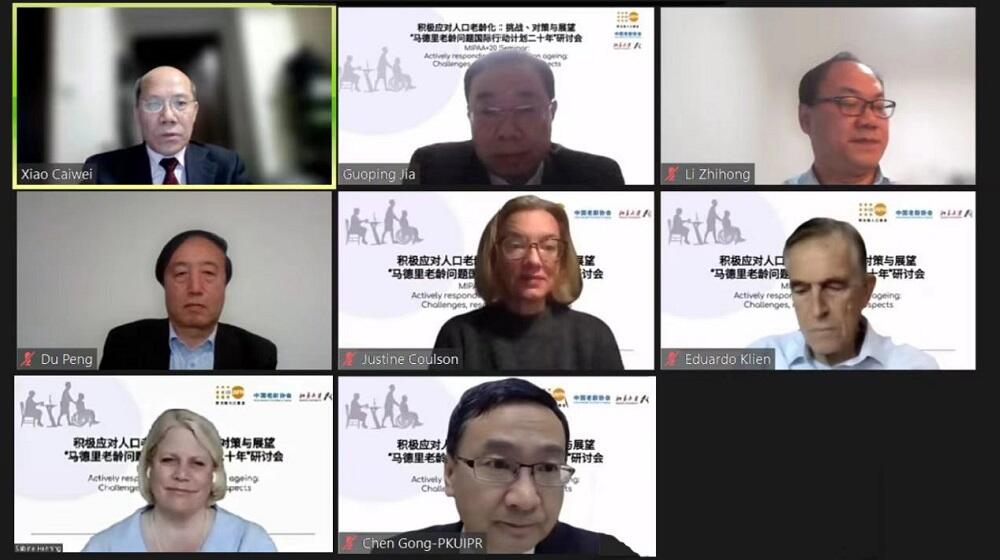On the 20th anniversary of the endorsement of the Madrid International Plan of Action on Ageing (MIPAA), the United Nations Population Fund (UNFPA) in China, the China National Committee on Ageing (CNCA), and the Peking University Population Research Institute jointly organized the "MIPAA+20 Seminar: Actively responding to population ageing — Challenges, responses, and prospects" on 12 December.
The meeting was attended by more than 80 government officials and scholars from both national and international institutions, including UNFPA, the United Nations Economic and Social Commission for Asia and the Pacific (UNESCAP), CNCA, Renmin University of China, Peking University, and HelpAge International.
Dr. Justine Coulson, UNFPA Representative in China and Mr. Xiao Caiwei, CNCA Vice President made the introductory comments. According to Dr. Justine Coulson, the fundamental messages of MIPAA are that older persons should benefit from inclusive social and economic growth while still be able to make a significant contribution to society to the best of their abilities. With the fast rise of population ageing over the last 20 years, China has taken efforts to enhance the educational attainment, health, and economic standing of its older persons, as well as explore their potential to react to population ageing concerns.
UNFPA will be guided by MIPAA and continue to support China's active response to population ageing and low fertility.
Mr. Xiao Caiwei affirmed the significance of the meeting and welcomed the participants.
Prof. Du Peng, Vice President of Renmin University of China, presented and summarized the current situation and trend of China's population ageing and older persons over the last two decades from six perspectives: educational status, urban-rural distribution, marital status, family structure, living arrangement, economic sources, and labor participation.
Mr. Li Zhihong, Director of Programme Development Department of CNCA shared the achievements China has made in age-friendly policy and legal system, social security coverage, public service quality and social environment.
Dr. Sabine Henning, Chief of the Sustainable Demographic Transition Section of UNESCAP's Social Development Division highlighted the findings and challenges of the fourth round of MIPAA evaluation for the Asia-Pacific region, as well as future work directions.
Prof. Chen Gong, Director of Peking University's Population Research Institute and the China Ageing Development Research Center sorted through the Chinese literature on the theme of responding to ageing over the last 20 years, analyzing priority research issues and frontier trends in ageing research.
Dr. Eduardo Klien, Regional Representative in Asia and the Pacific of HelpAge International reiterated the importance of an active ageing concept from the Asian experiences.
Dr. Jia Guoping, Population and Development Programme Specialist of UNFPA in China stated that MIPAA has demonstrated tremendous vitality in directing the development of ageing policies and programmes and would continue to be relevant in the future.
MIPAA is by far the most important international document on ageing, providing a key operational framework for policy development and academic research on ageing issues worldwide.
For more information on the MIPAA: https://www.un.org/development/desa/ageing/madrid-plan-of-action-and-its-implementation.html.


